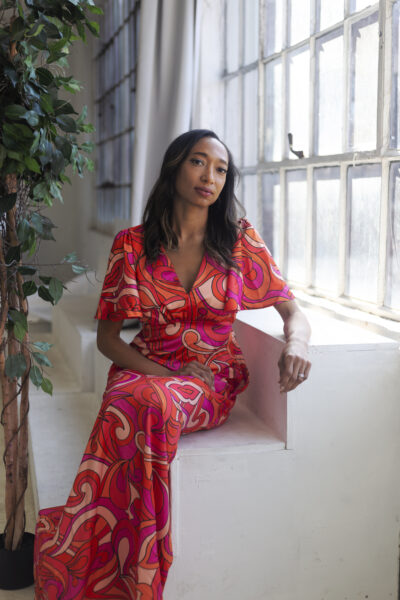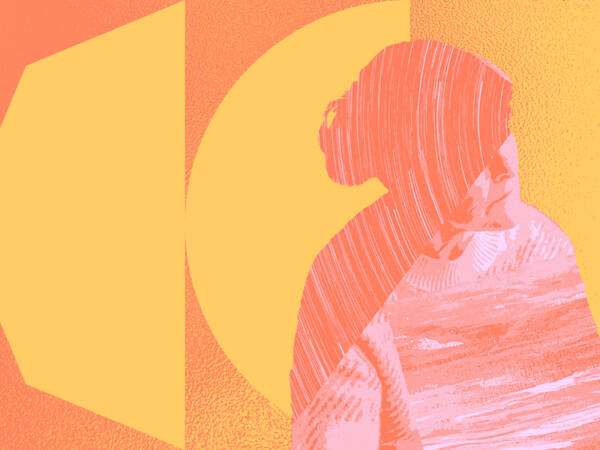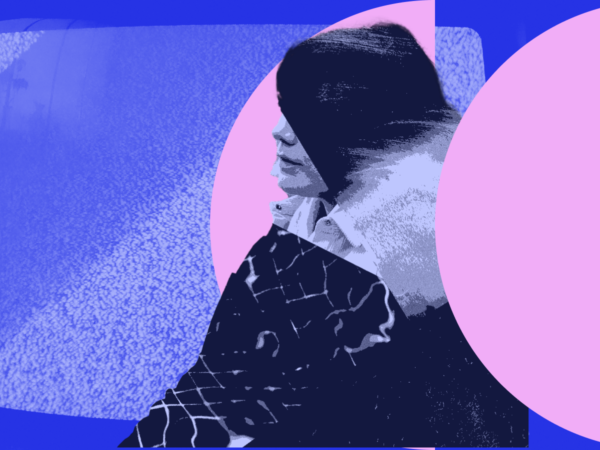Survivor Story
The Room That Remembered: My Spiritual Discovery After Sibling Sexual Abuse
Religion can play a polarizing role in sexual abuse situations, from being a shield for perpetrators to being a source of healing for survivors.
As a Black woman who happens to be a survivor of sibling sexual abuse, I am fascinated with how religion in the Black community has impacted our generational trauma. Phrases we often hear from friends and family while growing up, “Pray on it” or “Let Jesus take the wheel,” often suggest that faith alone will fix things. For decades, this concept has discouraged Black people from seeking therapy and facing their trauma head on. While that mindset has started to shift, I think it’s important to talk about how faith and survivorship can positively intersect for some Black survivors like myself who remain spiritual, while also incorporating cognitive therapy into their healing journey. After enduring sexual abuse as a child, my spirituality blossomed at a time when I needed it most—but I did not see the connection until decades years later.
When I was around 10 or 11 years old, I moved into my brother’s bedroom after he graduated from high school. This was where my sibling sexual abuse took place in secret for multiple years since I was about three years old. My parents encouraged me to move into my brother’s bigger room, which they figured would excite me as their second born with the smaller room. I look back at little Nubia then, and think about the amount of disassociation that took place for me to “forget my abuse” and sleep there for almost a decade. My original bedroom had been a safe space, regardless if I had realized it then or not. The energy in my brother’s room was off, and my subconscious knew it.
By the time I was 13 and in middle school, I started to experiment with drinking alcohol, getting beer or malt liquor from my friends’ older siblings when their parents weren’t around. I wasn’t really drinking to party with friends–instead, I hid bottles in the bottom drawer of my white bedroom dresser. I chose to drink alone in my room at night because I felt this incessant need to be drunk at bedtime, the same time my abuse took place years prior. I started to feel guilty about my life, but I couldn’t grasp where the guilt was coming from. There was a deep desire to reconnect with my Native American ancestors and practice shamanism, as well as explore more of what my brain was capable of from a metaphysical standpoint. None of my friends could understand, which was extremely isolating for me. There was something enticing about having a secret, so I began to explore my spirituality on my own, while living in a Christian-Muslim household.
At 14, I was using my allowance money to buy books on Chakras, Buddhism, Shamanism and meditation. It became an obsession. I needed guidance, direction and connection to something greater than I was. I yearned for an advocate or mentor, so I started searching online for a likeminded spiritual group I could connect with, not even realizing this could be a dangerous thing to do in the early years of the internet. I remember a close friend of mine said to me, “Are you sure you know what you’re doing? Be careful.”
I took a chance without my parents knowing (my new spiritual obsession was a mystery to them), and met up with a complete male stranger who was a shaman I discovered online. I had a 6th sense that I would be safe, that I needed to go on this journey—and I was correct. For three years I was trained by him, and the tools that I learned during that time have stayed with me today: honing my intuition skills, learning visualization techniques, learning the healing properties of rocks and energy, and so much more. Instead of drinking in my bedroom at bedtime I was learning how to read divination cards, meditating by candlelight and memorizing the stars in the night sky. I created a safe, serene space in my new bedroom with an altar filled with crystals and a room filled with warm energy, aromatherapy and love.
During college and thereafter into my early adulthood, a lot of my spiritual routines faded away, but spiritualism was still important to me. I took so many religion courses at Barnard College that I ended up getting a minor in it. Learning the practices and belief systems of Western Mysticism, Hinduism, Buddhism, Shintoism, Sufism and Islam were constant reminders that religion has the power to heal, no matter which path you decide to follow.
When I was 34, my repressed memories of sibling sexual abuse returned in 2016 while raising my children—it was devastating. In addition to returning to therapy, I turned to my spirituality. I went into my closet that housed my large wooden “spirituality box,” which had traveled with me to every place I had lived after graduating from college, from Taiwan and Washington, D.C. to New York City and South Orange, NJ. I practically dusted off the box when I opened it to unearth the items that had given me so much strength as a teenager.
I often say to folks, “I was my best parent,” because I was raised in a home that felt very much unsafe subconsciously (despite my parents assuming they were creating a protective space). Yet I persevered by listening to my inner self and connecting to my spirituality. Today, I still go to therapy but there are times when I don’t feel safe to ask for guidance from others or I struggle to acknowledge my needs and inner voice. When that happens, I pray, pull an animal medicine card or oracle card from my variety of decks, meditate or draw energy from one of my healing stones to gain more insight. Years later, I now realize something incredible: my brother’s room remembered what I couldn’t, and in that silent knowing, it guided me to tools that helped me dig deeper into my mind-body connection, supported my recovery and ultimately helped me persevere.




